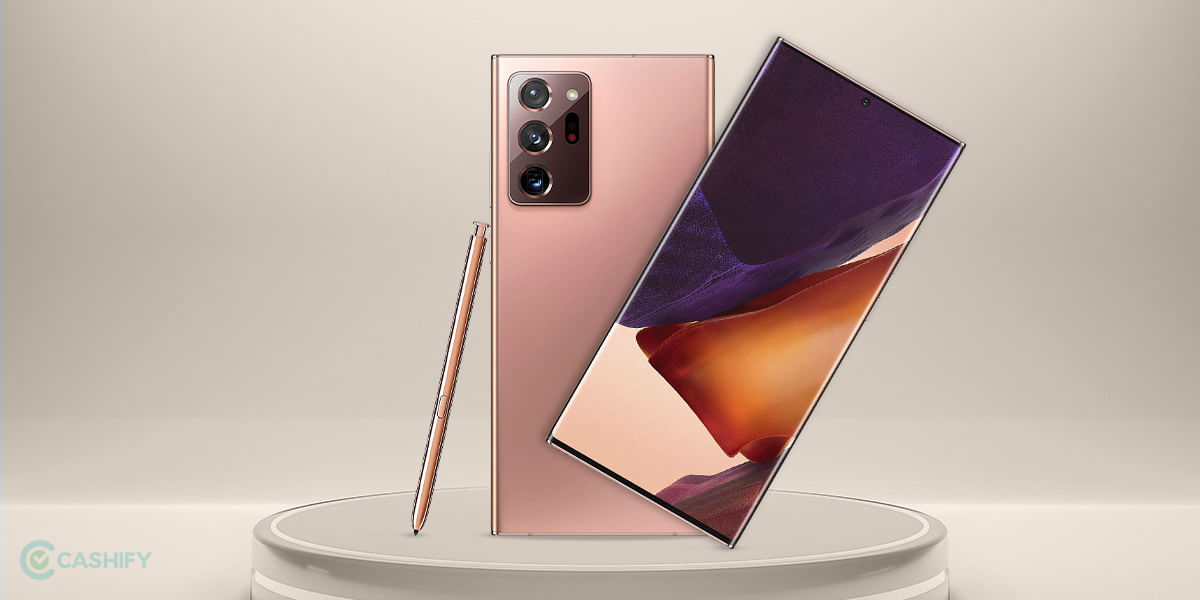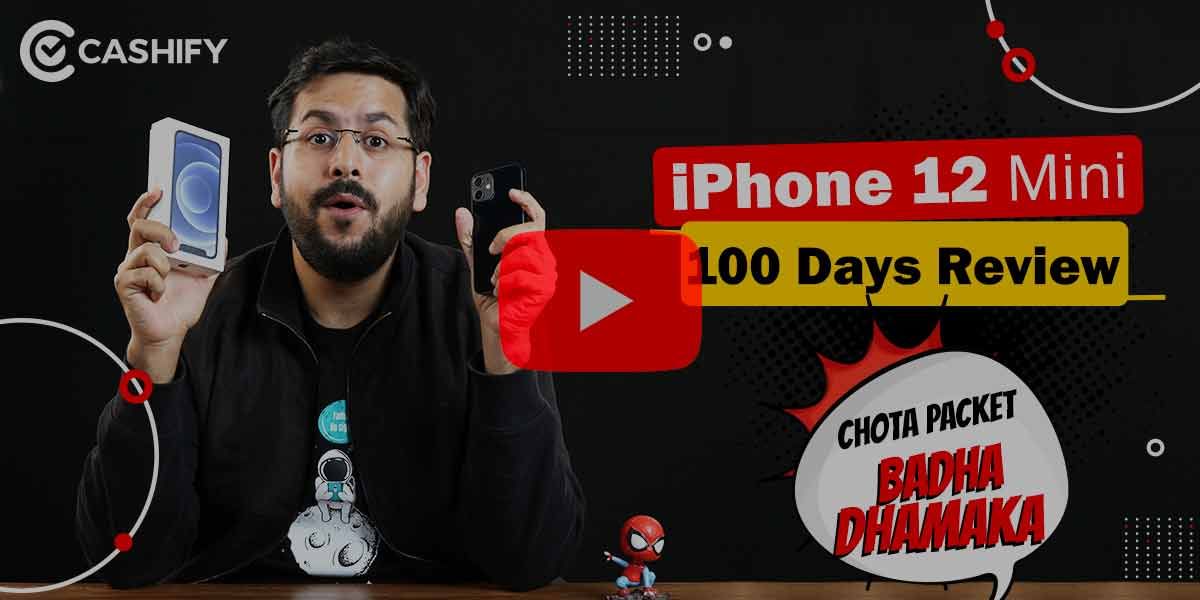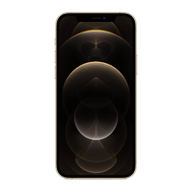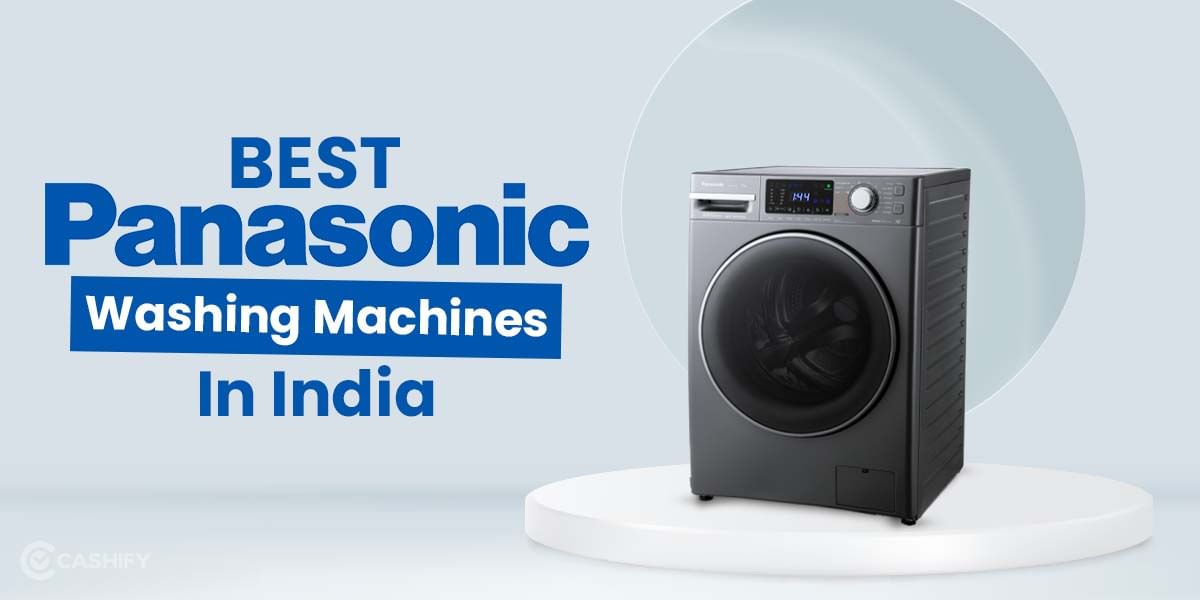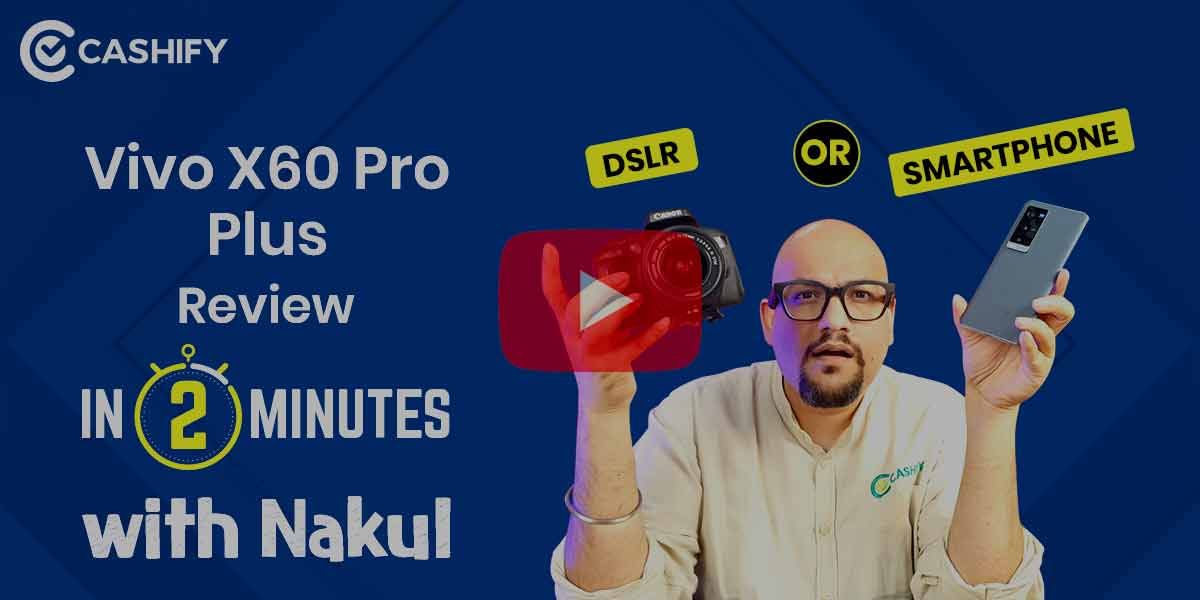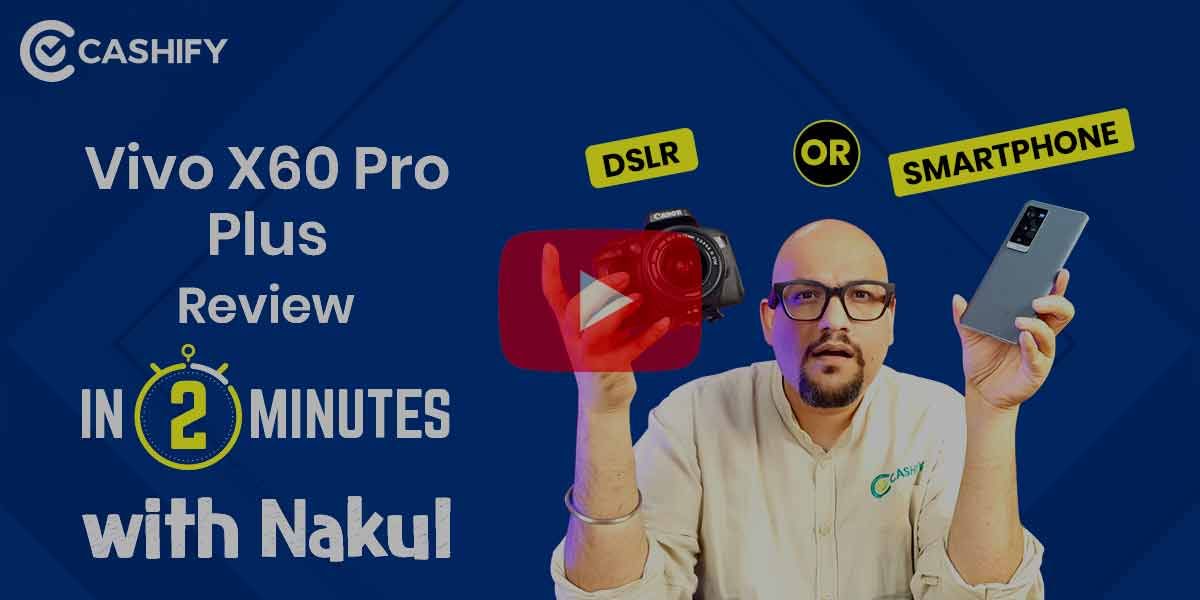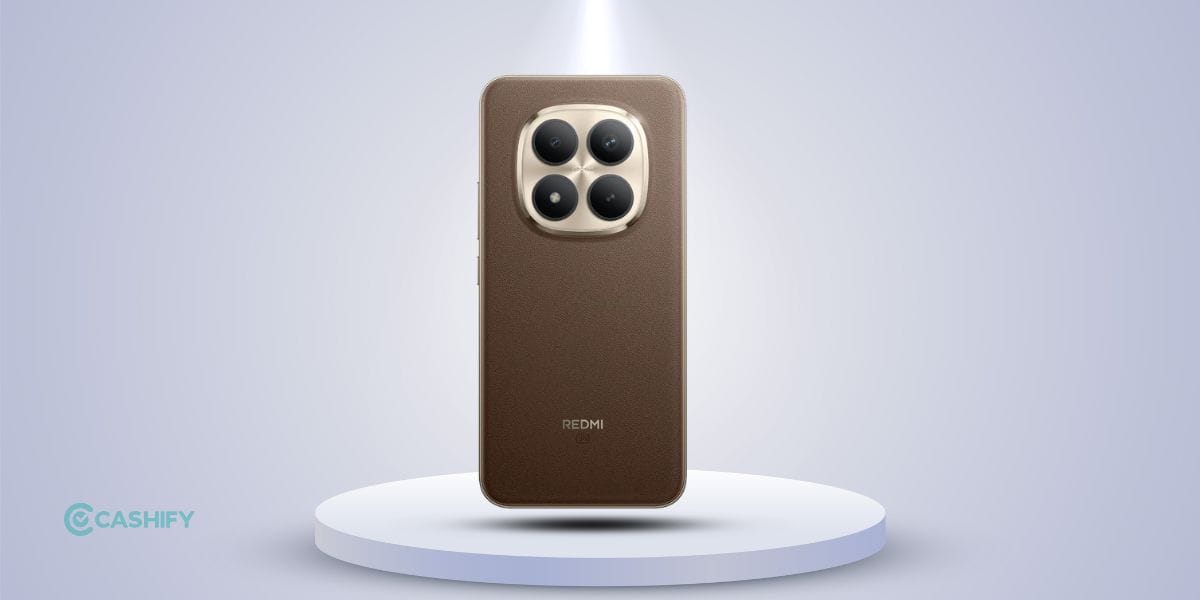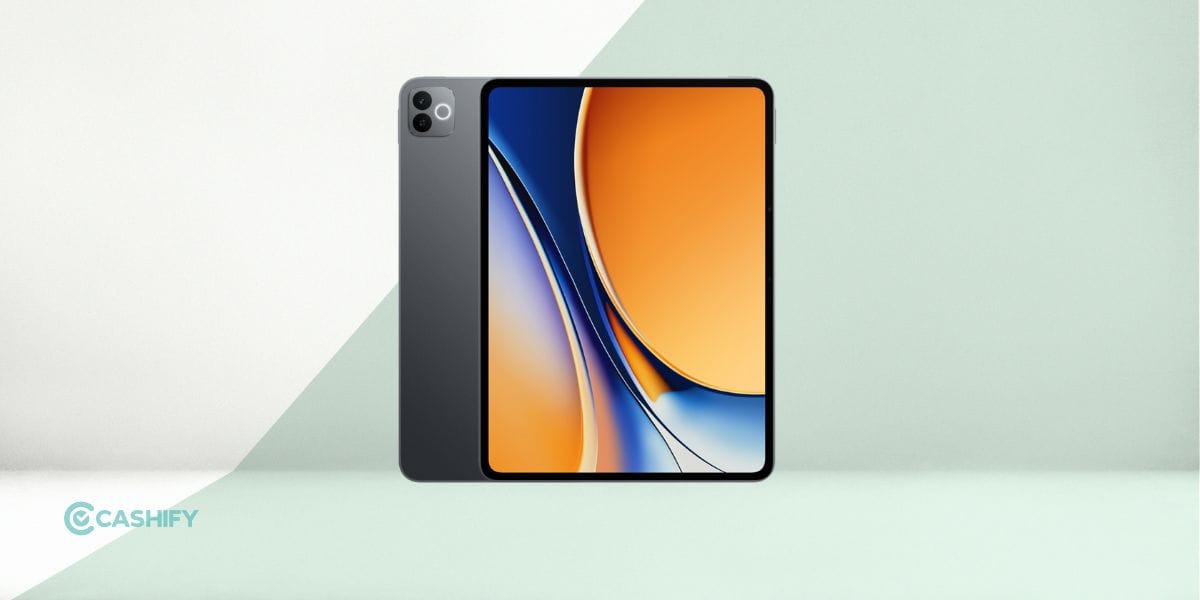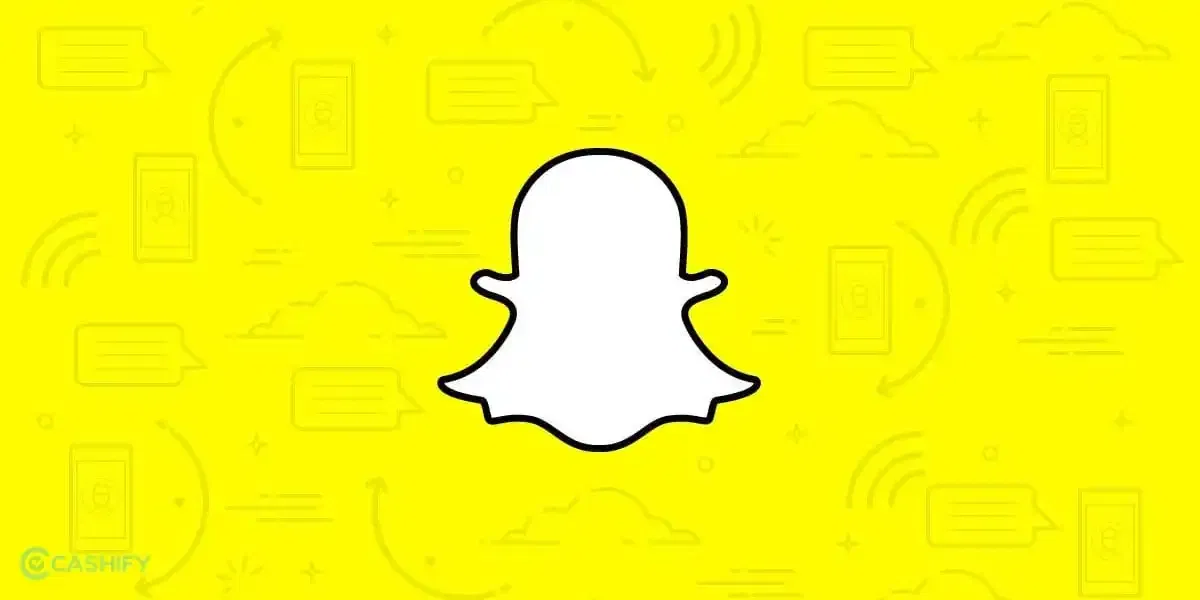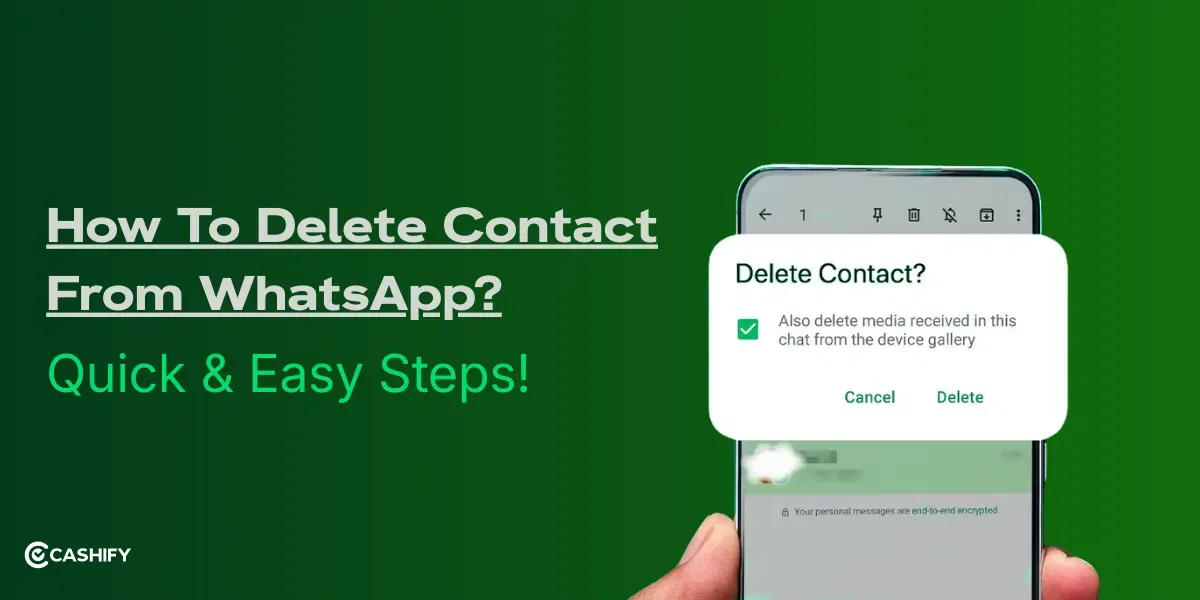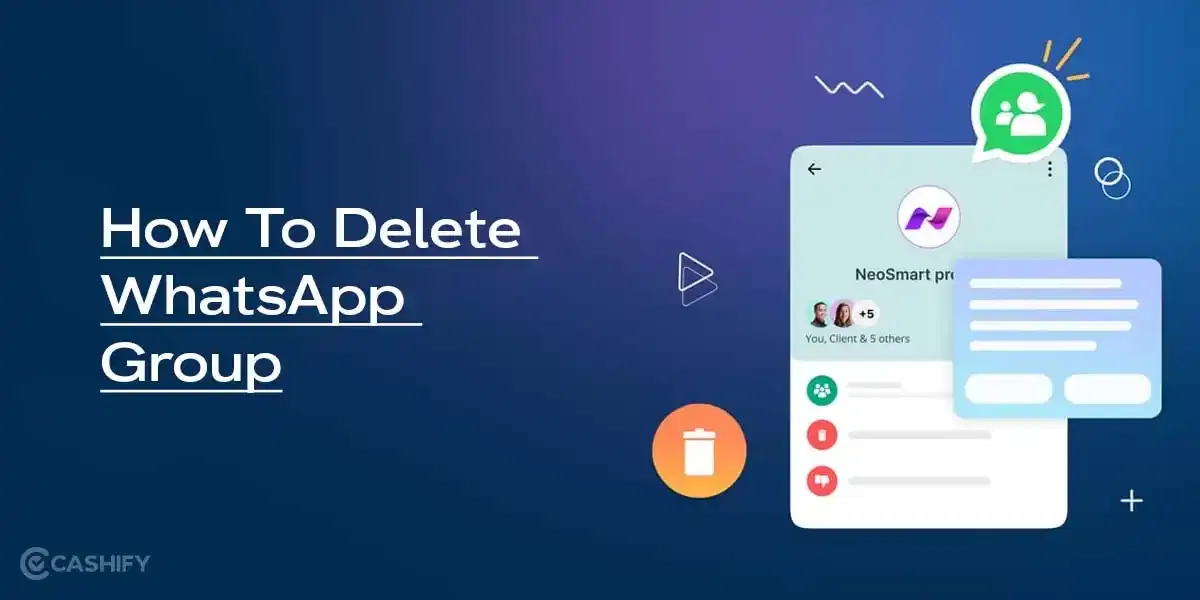Introduction - Very Few Upgrades
Apple launched its latest iPhone lineup in a virtual online event in October 2020, and this year we have four different iPhone models to choose from, making it a challenging task for the buyers to choose one best for them. The new family of iPhones includes the vanilla iPhone 12, iPhone 12 Mini, iPhone 12 Pro and iPhone 12 Pro Max. All of them shares almost similar specifications and features but at vastly different prices. Yeah, there is the fresh design, which is making quite a buzz, a new SoC and some camera improvements over the last year models, plus of course the most-hyped word of 2020, “5G”, but all of these were kinda expected upgrades, and it will take more than that for someone to spend a whopping ₹1,19,000 on it. Let us see if the new iPhone 12 Pro is a worthy choice over the lower-priced iPhone 12 and read through the end to know why I personally chose to switch to iPhone 12 Pro for myself.
Also Read: iPhone 12 Review
Prices in India, Variants, Availability -
The pricing of flagship iPhone 12 Pro might feel really odd when you consider how much it costs in the US. The iPhone 12 Pro will cost you quite a bit more if you are in India than in other regions. Apple iPhone 12 Pro starts with a 128GB variant which is priced at ₹1,19,990. The 256GB variant of iPhone 12 Pro will cost you ₹1,29,990, and the top-end variant with 512GB of storage comes at a price tag of ₹1,49,990. That’s quite a hefty price for any smartphone, and keep in mind, the iPhone 12 Pro Max is even more costly. As for the colour options, the iPhone 12 Pro is available in four shades of which the Pacific Blue is the new addition to the colour palette, the rest being the same old – Silver, Graphite and Gold.
Read More:
You can buy it from Amazon India or Flipkart among other eCommerce services. Do check out for some amazing deals on Amazon and Flipkart like the buy with exchange offer or the No Cost EMI.
Box Contents
iPhone 12 Pro comes in an all-new packaging by Apple which misses the fast charging adapter or say, any charging adapter at all. You won’t even find the lightning earpods in the retail box this time. Without these, the box looks slimmer and stylish. An iPhone 12 Pro Box includes:
- iPhone 12 Pro device
- USB-C to lightning cable
- User Manual and Apple Sticker
Specs at a glance
Before we talk in detail about the iPhone 12 Pro, let’s have a quick look at the key specifications.
- Display: 15.49 cm (6.1 inch) Super Retina XDR Display
- Processor: A14 Bionic Chip with Next-Generation Neural Engine Processor, 5G
- Storage: 128Gb/256GB/512GB
- Software: iOS 14
- Rear cameras: 12MP + 12MP + 12MP + LiDAR scanner
- Selfie camera: 12MP
- Build: Ceramic Shield, IP68 Water Resistance
- Weight: 189g
- Dimensions: 146.7 x 71.5 x 7.4 mm
The Apple iPhones are not much about the specifications but the real-time performance, so let’s not delay to see how the iPhone 12 Pro performs and if you should spend that much or not on this new flagship by Apple.
Design and Build - Throwback to the School Days
I would say the new design is not fundamentally new. The boxy squared-off design took me back to a quick trip down the memory lane, back to my school days when there used to be the most loved iPhone 4. The iPhone 12 Pro adopts the flattened stainless steel frame while the standard iPhone 12 comes with an aluminium frame.
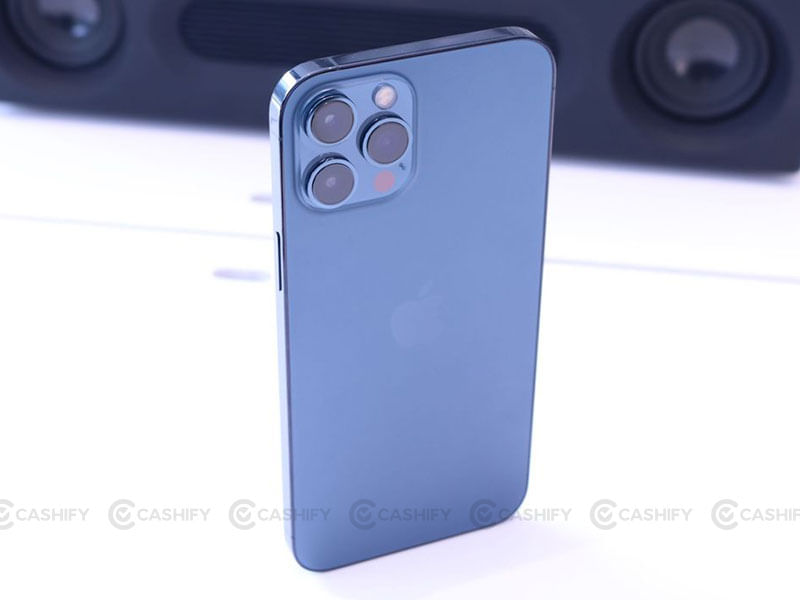
The stainless steel feels really high quality in hands when you hold and is quite significant. Comparing it side by side with the iPhone 12, the 12 Pro definitely flaunts a more premium feel. That said, I found the stainless steel frame to be a huge fingerprint magnet, and I had to constantly clean up the sides to keep the glossy frame smudge-free, which gets quite irritating after some time, at least for an OCD person like me.
Read More: iPhone 12 Review – A Powerful Throwback
Most of the ports and buttons are placed in a similar fashion as on the iPhone 11 Pro. The buttons have good feedback and are flat. Embedded in the right side of the frame is a large power button. On the left, you’ll find the volume rockers and Apple’s classic notification slider switch. There is also a SIM card tray near the bottom of the left side of the device. The iPhone 12 Pro only supports a single physical Nano-SIM, but an eSIM option is present. The models sold in India lack the little cutout on the right side of the frame for the millimetre wave (mmWave) 5G antennas that are present on the version sold in the US. On the bottom, we have a set of stereo speakers surrounding the lightning port.
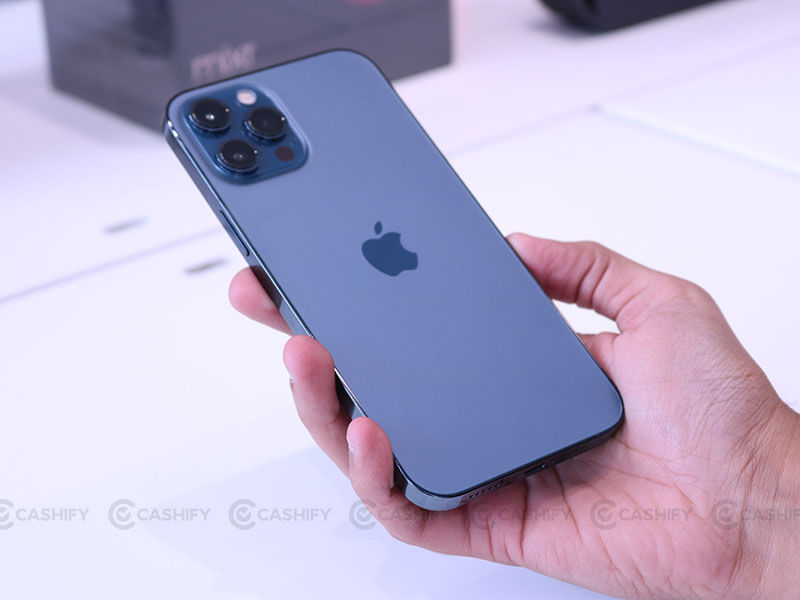
The display on the iPhone 12 Pro is larger than the one on the iPhone 11 Pro. It is a 6.1 inch Super Retina XDR display as compared to the 5.8 inches display of the iPhone 11 Pro. The screen is protected by a new cover glass material that Apple calls as the “Ceramic Shield”. Also, it comes with IP68 certification, hence it is resistant towards dust and water up to 6m of depth.
Display - You're Gonna Love
This year, for the first time ever, all the iPhone models feature an OLED display, which I believe is a wiser decision by Apple considering that all iPhones are flagship devices now. The display on the 12 Pro is a 6.1-inch Super Retina XDR OLED panel with a resolution of 1170 x 2532 and a pixel density of 460PPI. It can reach a peak brightness of 800 nits with the slider operated manually and up to 1200 nits while watching HDR content. The display looks sharp and vibrant with wide colour for vivid, true-to-life colours, and True Tone to match the colour temperature of the display to the ambient lighting for a more natural viewing experience. But I paid over a lakh on the iPhone 12 Pro still to notice the same old standard 60Hz refresh rate, which now makes me feel its quite overpriced. It’s quite a disappointment, considering Apple’s own iPad now uses a 120Hz ProMotion display and almost all Android phones in this price range have at least a 90Hz refresh rate display.
The display is completely flat with rounded corners and the same Face ID notch which Apple introduced three generations ago with the iPhone X. While I have heard that Apple will eventually shrink the notch and possibly even move the sensors under the display, however, if you really find the large notch on the iPhone 12 Pro then there are a plethora of Android phones with very small camera cutouts on the display for a more immersive experience.
The front of the iPhone is protected by a new Ceramic Shield, rather than the standard cover glass, made by infusing nano-ceramic crystals into the glass to improve durability. Apple claims that the new Ceramic Shield offers 4 times better drop performance than the standard glass on the earlier iPhone models. Oh! I still
Performance - As Snappy As Ever
The iPhone 12 Pro houses the A14 Bionic chip, the first-ever smartphone chip built on a 5-nanometer fabrication process and integrates 40% more transistors (11.8 billion) than the A13, for better battery life and faster performance. In terms of power, the A14 Bionic promises up to 50 per cent better CPU and GPU performance compared to the previous generation, which I feel is still very powerful. From my usage, I can tell you, that in daily use it is very, very fast. I’ve had no issues with slowdowns or laggy apps. But on the other hand, since I was using the iPhone 11 Pro
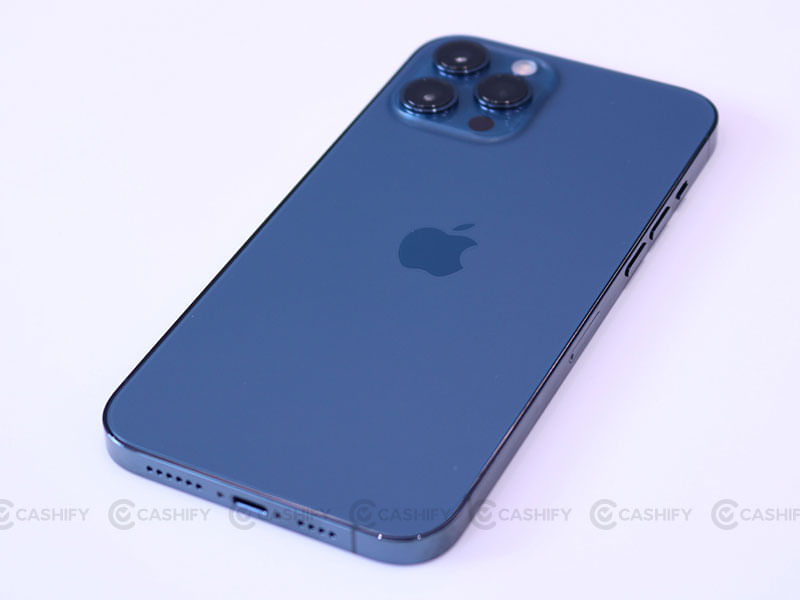
As for gaming, the A14 Bionic is a superbly capable chip to handle all popular mobile games like Call of Duty Mobile, PUBG Mobile or any other. You can play in the maximum possible graphic settings without facing any lags or frame drops and it does not heat up as well. I heard it online that some people are complaining about the heating issue with the iPhone 12 so we tested it out. We played Call of Duty Mobile for about 30 minutes and did not notice any major heating issue, though the device did get slightly warmed up with temperatures measuring up to 35-36 degrees, that’s normal.
Software
For the software part, the iPhone 12 Pro ships with the iOS 14. It’s a slight upgrade over the iOS 13 and contains mostly bug fixes and some minor UI improvements.
The new App library is an app drawer which is always present on the right home screen pane. Apps will be added automatically to the App library upon installation. You can summon the Notification Center with a swipe from the left corner of the notch while a swipe from the right corner of the notch summons the Control Center having customisable and some expandable toggles. There is a system-wide Dark Mode which you can enable manually or schedule it from within the display settings. The Siri interface has also received an update in the form of a more compact Siri icon. Upon summoning Siri, a small ball is visible around the bottom, and your answer will be provided in a small pop-up window with which you can still see what’s happening in your active app.
There are some added privacy features which include options to change default browser and mail client, Safari’s Privacy report about website trackers, the option to report approximate instead of precise location, and also the green and orange indicators for camera or microphone in use.
The overall software is well optimised which even leads to notable smoothness in the display even at 60Hz.
Cameras
The iPhone 12 Pro packs a similar camera setup as the iPhone 11 Pro. The two big changes in the 12 Pro’s camera are the switch to a wider f/1.6 aperture in the main lens vs the f/1.8 lens in the iPhone 11 Pro.
Additionally, you get the new LIDAR sensor that helps the iPhone 12 Pro acquire better focus in low-light environments plus some new software features like the 4K 60fps Dolby vision HDR video recording alongside the Night Mode Portraits.
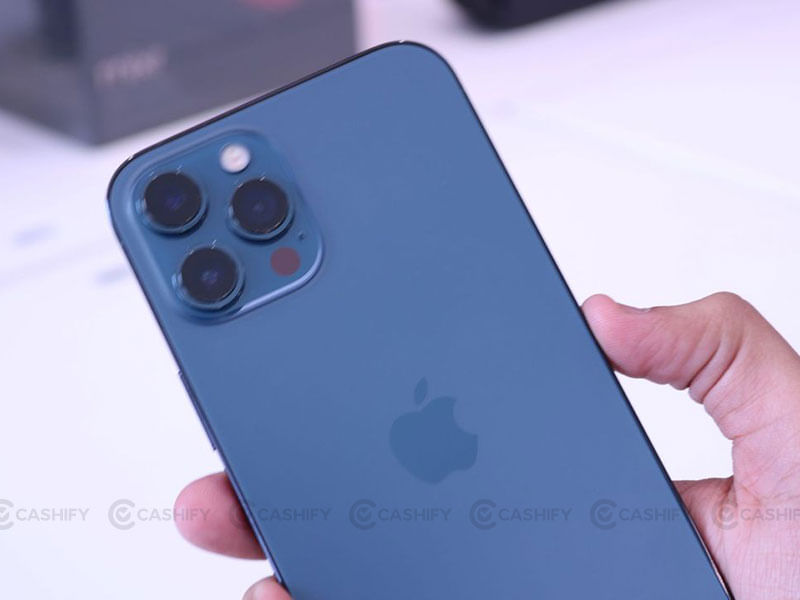
The three cameras present at the back include a 12MP primary sensor with f/1.6 aperture, a 12MP Ultra-wide with an f/2.4 aperture and a 12MP telephoto lens with f/2.0 aperture for 2x optical lens. The selfie camera at the front uses a 12MP sensor with f/2.2 aperture and 1.0µm pixels.
In daylight, the main-camera captures quite good looking shots with good dynamic range, balanced sharpness, good contrast and true-to-life colours. The 12 Pro uses the same sensor as the iPhone 12, 11 and 11 Pro, and that’s why its output is not much different from theirs.
The 12MP ultrawide images are among the widest you can capture with a phone, and it is quite impressive with what we can just fit in one photo. The 12 Pro has better distortion correction and edge sharpness than the iPhone 11 Pro. The images come out with good contrast, white balance and realistic colours. The noise is still kept reasonably low.
Also Check: iPhone 12 Video Review
The 12MP telephoto output is again impressive. There is plenty of detail and just like the main and ultrawide snappers, the telephoto images are very realistic thanks to a combination of high contrast, accurate white balance and colours, and well-controlled HDR for a balanced dynamic range.
The Night Mode activates automatically in low light conditions, though you can turn it off manually or correct the suggested exposure time but, it is recommended that you leave it on automatic. Images taken with the Night Mode are flagship-level with proper details and low noise levels.
Video recording is available at 4K 60fps and feature expanded dynamic range, all thanks to the Smart HDR. You can also capture slow-mo videos at 1080p 240fps.
The video quality is quite stellar. The clips are very vibrant, show excellent contrast with low noise and impressive dynamic range, while colours stay true to life. 4K videos recorded in low-light are very good, with enough detailing, true to life colours and reasonably low noise.
Battery
The iPhone 12 Pro is using a slightly smaller battery than last year’s iPhone 11 Pro. It sports a 2,815mAH cell vs the 3,040mAh cell in the iPhone 11 Pro. Apple says this shouldn’t matter much because the new A14 Bionic processor uses a 5nm process node, which makes it both faster and more power-efficient. However, real-world results tell a slightly different story.
We were able to manage an average of 6 hours of screen-on-time on the iPhone 12 Pro compared to last year where we could actually get an average of 7-hours of the screen on time. The device lasted for about a day and a half upon a single charge on moderate usage which mainly includes social media use, calls and multimedia consumption.
The iPhone 12 Pro uses 20W fast charging which can charge the device from zero to 50% in 30 minutes, 90% in 60 minutes, while the last 10% required some extra 30 minutes. Apple includes a USB-C to lightning cable in the box but no actual power adapter, citing environmental conservation as its reasoning so you have to purchase one by paying some extra bucks in addition with the huge price tag of the device.
As for wireless charging the official MagSafe charger can charge your Phone at 15W which is twice as fast as the previous speed of 7.5W. However, these speeds are only achievable when using official MagSafe charger otherwise the maximum charging rate you’ll be able to achieve is the same old 7.5W.
Audio, Connectivity, Biometrics
On the audio front, the iPhone 12 Pro packs two speakers for stereo playback, two microphones for background noise reduction, and Dolby Atmos technology that promises 3D sound. It delivers great performance even at soft volumes and highly satisfying maximum volume. It also performs very good in gaming mode, thanks to the clever positioning of its speakers, which are nearly impossible to occlude.
The iPhone 12 Pro comes with dual-SIM support- a physical Nano-SIM and an e-SIM, along with 5G support. Other connectivity options on the 12 Pro include dual-band Wi-Fi, Bluetooth 5.0, NFC and lightning port with USB 2.0. GPS support with A-GPS, GLONASS, BDS and QZSS is present. Other sensors present include accelerometer, gyro, proximity, compass and barometer.
For security, the iPhone 12 Pro has the Face ID unlock. Apple’s 3D facial recognition system is top-notch in the mobile biometrics industry. It works incredibly fast and works in all lighting conditions. The iPhone 12 Pro lacks a fingerprint sensor as the second option for biometrics as many were hoping that the company would bring back the Touch ID this year to match the sensor on the new iPad Air. Especially in a year where we all are wearing masks. Hopefully, we’ll see a fingerprint sensor next year.
Pros & Cons
Pros
- Flagship design and premium feel in hands
- Gorgeous, vibrant, bright, big Super-Retina XDR display
- Best-in-class performance with A14 Bionic chipset
Cons
- No 64GB variant hence the 128G might feel pricier
- No in-box charging adapter and earpods
The iPhone 12 Pro is surely one of the most elegant designed smartphones of 2020. With the Super Retina XDR, it has one of the best in class displays. It houses the fastest smartphone chip which is capable to meet the needs of all types of users. Let it be gaming or average day to day usage it is capable enough to handle all with ease.
Moreover, the software experience with the iOS 14, being fast and simplistic, and with 5 years of guaranteed updates is one of the major pros of getting an iPhone. The device comes with 5-G connectivity which makes it future proof. However, a faster refresh rate display would have been highly appreciable as it has now become a mandatory flagship feature.
Apple’s controversial decision of removing the charging brick from the box is something that users have to accept and while it supports fast charging at 20W it is still far behind from what many Android OEMs like Xiaomi and OnePlus are offering, with crazy-fast charging of 120W and 65W and the “charging brick inside the box”.
Overall, if you are looking to upgrade from iPhone 11 Pro to the iPhone 12 Pro there is not so much of difference but if it’s from any other iPhone model before the iPhone 11, you can definitely upgrade. Also, the lower-priced iPhone 12 can be an equally good option if you are satisfied with not having an additional telephoto lens and the LIDAR sensor, otherwise, both the devices offer similar specs.


